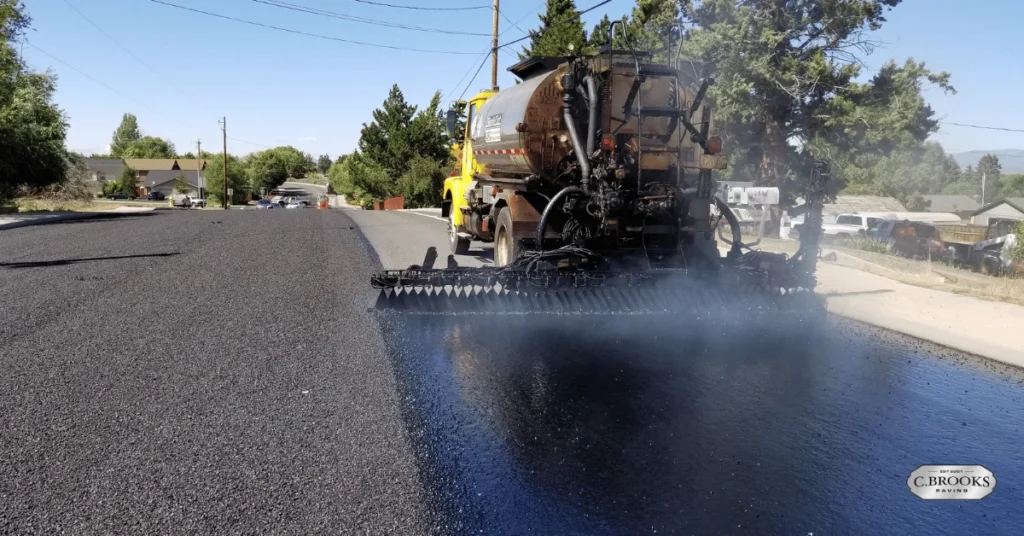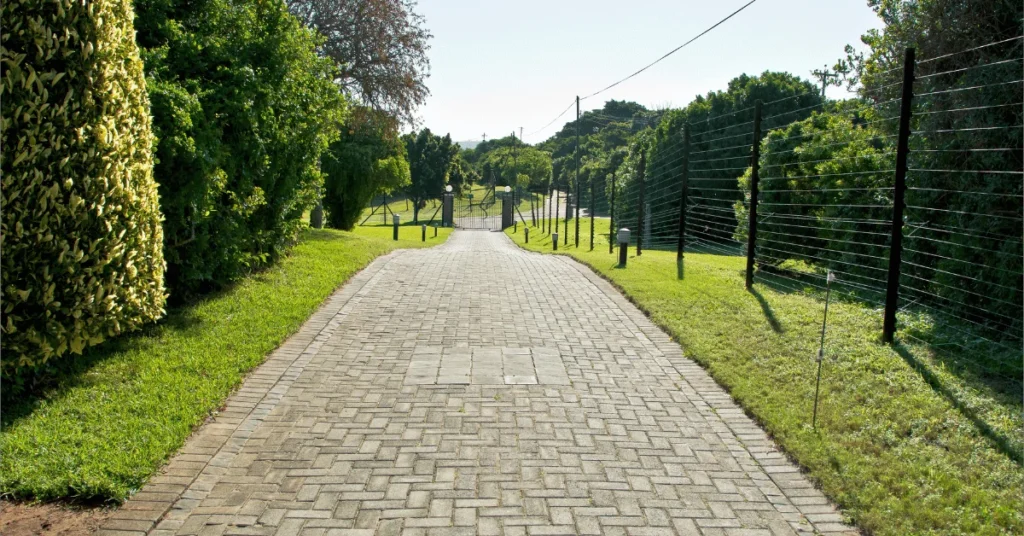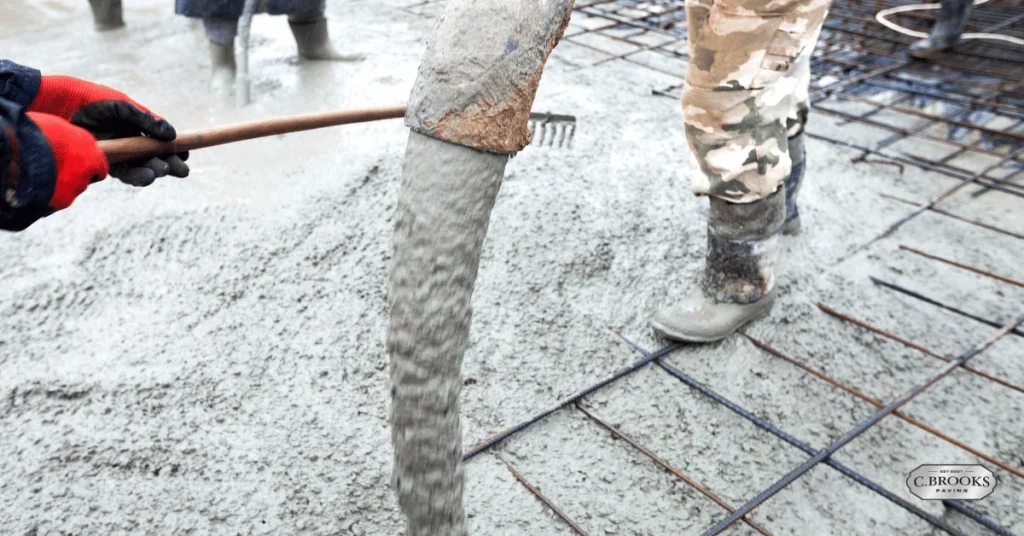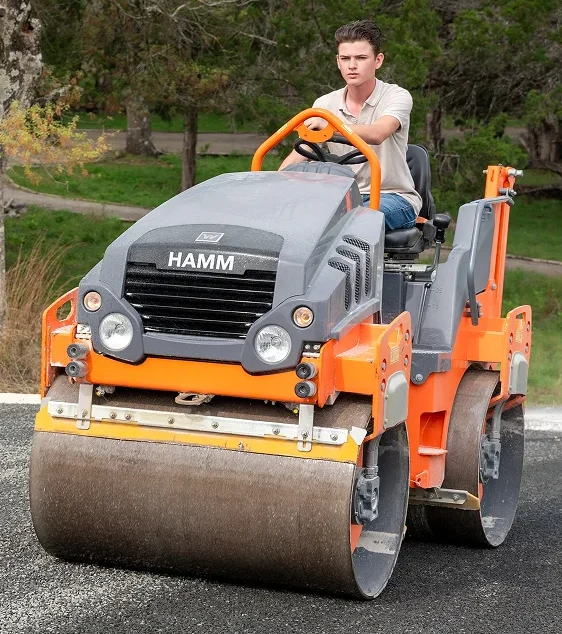Concrete paving plays a key role in building driveways, sidewalks, parking lots, and concrete pavement throughout South Texas. Whether you’re a homeowner in Bulverde planning a new paving project or a business owner seeking a durable solution for parking lots, understanding the fundamentals of concrete paving can help you make better decisions.
From the type of concrete and concrete mix to the paving process, cleaning, repair, and installation, there’s much to learn before laying a single slab. This guide to concrete paving 101 covers benefits, costs, and how it stacks up against asphalt and other paving materials.
What Is Concrete Paving?
Concrete paving refers to the process of pouring and curing a concrete mix made of cement, water, sand, and aggregate to form a durable and long-lasting surface. This method is widely used for concrete pavement, sidewalks, parking lots, and driveways.
Concrete paving involves delivering the concrete to the site, preparing the surface, pouring the layer of concrete, and allowing it to cure properly for structural integrity. A well-installed concrete surface can handle heavy traffic, freeze-thaw cycles, and wear and tear for decades.
Benefits of Concrete Paving in South Texas
The benefits of concrete paving go beyond aesthetics. It offers practical advantages for long-term performance and low upkeep in harsh weather conditions.
- Longevity: With proper installation and care, concrete pavement can last 30 40 years far longer than asphalt.
- Strength and Durability: Excellent for heavy traffic areas such as driveways, roads, and parking lots.
- Low Maintenance: Well-maintained concrete requires less repair and cleaning over time.
- Heat Reflection: Its light color reflects the sun’s rays, keeping surfaces cooler during Texas summers.
- Clean Appearance: Adds a polished, professional look to both commercial and residential spaces.
Concrete vs. Asphalt Paving: Which Should You Choose?
Choosing between concrete and asphalt depends on your budget, environment, and expected traffic loads. Here’s a quick breakdown:
| Feature | Concrete | Asphalt |
| Lifespan | 30–40 years | 15–20 years |
| Upfront Cost | Higher | Lower |
| Maintenance | Minimal | Regular sealing and repair |
| Heat Handling | Stays cooler | Absorbs heat |
| Look | Customizable (stamped, colored) | Plain, black finish |
Choose concrete paving if:
- You want long-lasting pavement with fewer repairs
- You’re looking for custom finishes like colored or stamped concrete
- You want better temperature control for walkways and driveways
Common Uses of Concrete in South Texas
A concrete paving contractor may recommend concrete for various applications depending on your paving needs. Common uses include:
- Driveways for suburban homes and ranch properties
- Commercial parking lots
- Private roads and rural paths
- Sidewalks, curbs, and concrete overlays
- Decorative patios and outdoor spaces
- Infrastructure projects like pavement repairs and drainage
Its ability to handle traffic loads, resist water infiltration, and withstand temperature changes makes it ideal for varied climates and property types.
The Concrete Paving Process: Step by Step
A proper paving process ensures durable and long-lasting surfaces. Here’s what a professional paving contractor typically follows:
Site Preparation
- Clearing and leveling the area
- Soil compaction to reduce future settling
- Checking for proper drainage
Reinforcement
- Using rebar or mesh to resist cracks and surface damage
- Helps maintain structural integrity over time
Pouring and Curing
- Pouring the concrete mixture onto the prepared surface
- Using a vibratory or static roller to compact the surface
- Ensuring moisture and temperature conditions are right for curing
- Allowing time for expansion and contraction
Finishing Touches
- Saw-cutting joints to allow for expansion and contraction
- Applying sealers for extended longevity
- Smoothening and leveling the paved surface

Mistakes to Avoid in Any Paving Project
Even a solid paving material like concrete can fail without proper execution. Avoid these common issues:
- Pouring in extreme weather like heatwaves or frost
- Using the wrong type of concrete for your specific needs
- Ignoring slope or drainage requirements
- Rushing the cure process
- Skipping the cleaning or sealing stage
- Hiring unqualified labor instead of a concrete paving contractor
How Long Does It Take to Cure?
Understanding concrete curing is crucial for the durability of your paving project.
- 24–48 hours: Light foot traffic
- 7–10 days: Light vehicles
- 28 days: Full strength and durability
During this period, avoid driving or placing heavy objects, and keep the surface moist to prevent premature cracks and surface damage.
Cost of Concrete Paving in Bulverde, TX
While the cost of concrete is typically higher than asphalt, its longevity and minimal repair needs often provide better value.
Pricing depends on:
- Surface area to be paved
- Site conditions like slope or obstructions
- Type of paving finish or design
- Thickness and traffic loads
- Labor and equipment required to transport the concrete
A reputable concrete contractor will provide a detailed cost breakdown so you understand the complexity of the project.

Why Hire a Local Concrete Contractor?
Local knowledge makes a big difference in successful paving. At C. Brooks Paving, we understand the unique terrain, paving needs, and weather patterns of Bulverde and the Hill Country.
Why that matters:
- Familiar with site preparation under harsh weather
- Know how to deal with temperature changes and freeze-thaw cycles
- Build long-lasting surfaces that resist water infiltration and maintain strength
- Use locally sourced sand and crushed stone
- Experienced in building concrete slabs for infrastructure projects and rural roads
Our Full-Service Concrete Paving Solutions
We handle everything from start to finish. Our concrete paving services include:
- Installation of new driveways and parking lots
- Repair of existing pavement
- Resurfacing and concrete overlays
- Decorative stamping and coloring
- Crack repair and joint sealing
- Cleaning and maintenance
We also serve commercial, residential, and rural clients throughout South Texas.

Final Thoughts
Whether you’re building a driveway, upgrading parking lots, or planning a commercial paving project, concrete paving offers a strong, cost-effective, and long-term solution.
At C. Brooks Paving, we combine four generations of expertise with local insight to deliver high-quality, custom paving for every need. Contact us today to speak with a trusted paving contractor and start planning your next concrete paving project.
Frequently Asked Questions
Q: 1 What’s the best time to pave a driveway?
A. Late spring or early fall, when weather is mild.
Q. 2 Can I install concrete over existing pavement?
A. Yes, but only if the existing pavement is clean and stable.
Q: 3 What causes cracking?
A. Improper curing, lack of compaction, or ignoring expansion and contraction needs.
Q: 4 How long does concrete last?
A. With care, years longer than asphalt up to 40 years in ideal conditions.





